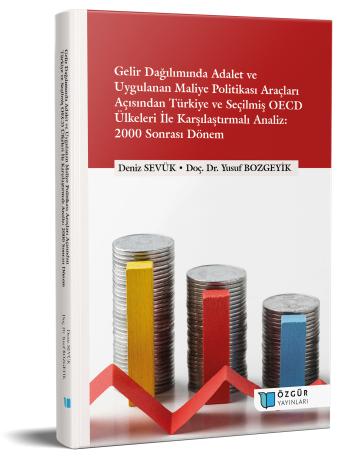
Income Distribution, Justice, and Comparative Analysis of Applied Fiscal Policy Instruments: Turkey and Selected OECD Countries in the Post-2000 Period
Synopsis
In the annals of economic history, the ongoing discourse revolves around the state's intervention in the economy through fiscal policy instruments. The classical economic movement, originating in the 18th century, advocated for minimal state interference in the economy; however, this perspective waned in significance following the Great Depression of 1929. Since then, there has been a prevailing argument in favor of selective and measured state intervention in certain economic domains. The concept of the social state has reshaped the perception of the state's role in the economy, leading to an augmented involvement.In contemporary discussions, the state's intervention in the economy is increasingly viewed as integral to the principles of the social state. Notably, one of the paramount responsibilities shouldered by the state is the assurance of equitable income distribution. This thesis constitutes an inquiry into the efficacy of fiscal policy tools employed by the state to ensure fairness in income distribution. The study aims to comparatively assess the effectiveness of various fiscal policy tools in promoting income justice over the past two decades. The analysis will extend to a comparative examination involving Turkey and select OECD countries.

